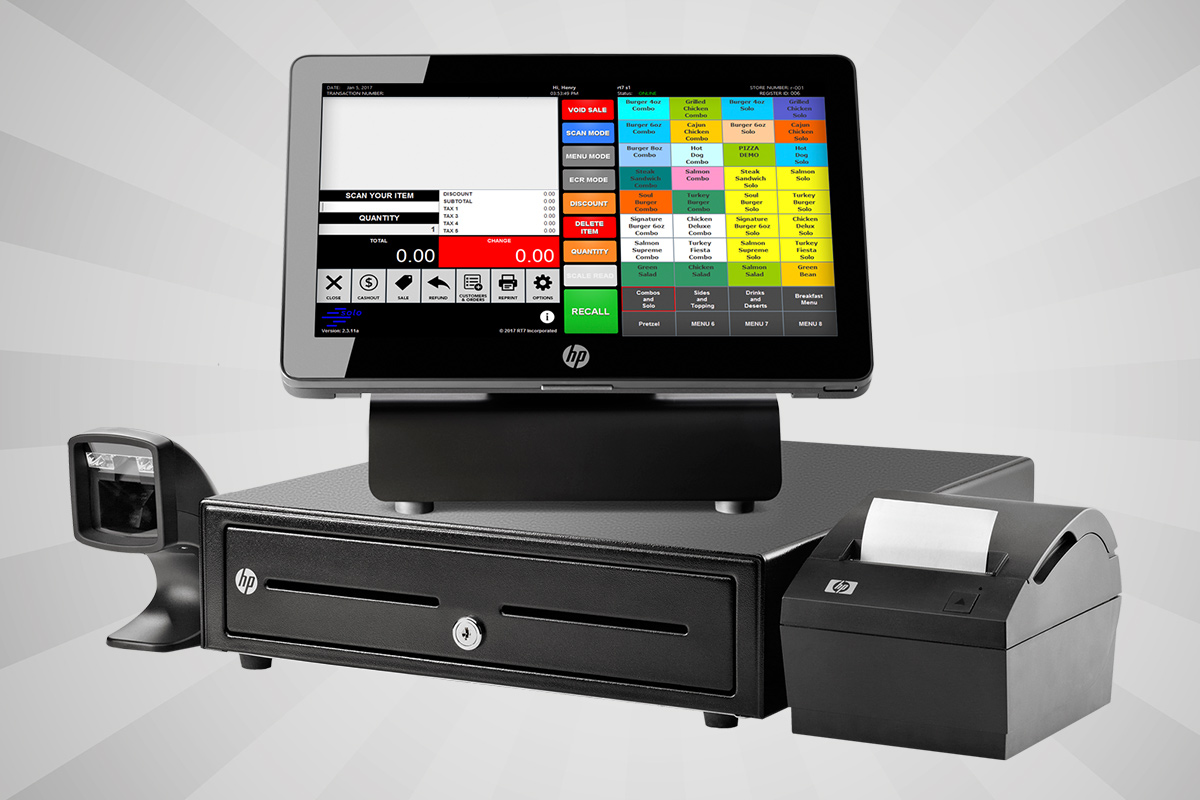06 Jun

Point of sale (POS) systems are becoming the technology of choice for organizations looking to thrive in the cutthroat business industry.
Grand View Research reveals that the POS software market surpassed $9.3 billion last year and will reach $18.1 billion by 2027. This increase can be attributed to its ability to automate sales processes, monitor inventory, and provide businesses real-time data and reports. It can also help businesses make quick and educated decisions to increase store profitability and reduce time spent on administrative tasks.
Unfortunately, choosing the right POS system for your operations can be tricky with so many options available that are packed with dynamic features. To help you narrow down your choices and zeroing on a suitable solution, this article will dig deep into the key features of POS system.
1. Inventory Management
Inventory management is perhaps the most significant reason why businesses are turning to POS systems. Managing inventory using manual processes and outdated systems is challenging, especially with customer demands continuously changing.
A robust POS solution is brimming with powerful inventory management capabilities that let you manage stocks in real-time and determine the quantity of goods over a given period.
This ensures that your business won’t carry any excess inventory that could bring several financial constraints and operational challenges. While there might be advantages to having excess inventory, holding excessive stocks may lead to your goods losing value over time as demand diminishes and product deterioration occurs. Using a POS system ensures that you have the right data to make an educated decision to prevent excess inventory and provide a seamless reordering process.
2. Customizable Sales Reports
Sales reports are an integral component of effective business management. They guide business leaders in decision-making and pinpoint or solve identified issues that are slowing down operations. POS systems are brimming with reporting capabilities, but only a few can deliver customizable reports that let you filter the information using several factors.
Thus, gathering information about POS software options is key to ensuring that your system allows you to customize reports. After all, business reporting won’t bring much of an advantage if you can’t get the right information immediately. A POS system with customizable sales reports makes it easier to weed through an avalanche of data so you can make quick decisions and free up more time to focus on revenue-generating opportunities.
3. Customer Relationship Management
Customer relationship management (CRM) is one of the features of a good POS system. A POS system with CRM capabilities allows you to store, manage, and monitor consumer data and purchasing habits. This way, you can segment and organize customers by classifications and sub classifications to create more targeted campaigns and establish strong relationships.
Listening to customers is one of the business lessons every entrepreneur should learn as it increases the potential for them to take action and improve the customer experience. A CRM-powered POS can also synchronize sales data, customer information, and other transactions in a centralized platform to enhance collaboration. This means you will no longer have to sift through folders and inboxes to find essential customer information, increasing productivity and overall efficiency.
4. Employee Management
Industry-standard POS systems do more than keeping your cash flow running and serving your customers. It also helps manage staff and ensure that everyone is on the same page to enhance customer experiences and overall operations. Among the functions of point of sale system is to manage sales performance, employee hours, and staffing levels for seamless productivity monitoring.
Its employee management module also lets you link transactions to each employee. This way, you can boost accountability among employees and prevent them from mishandling data.
A POS system’s employee management feature can also determine strong and weak performers, making it easier for business leaders to conduct appropriate training to improve productivity and increase morale.
5. Mobile App
The importance of mobile POS cannot be stressed enough with the growing competition in the business industry. As a business owner, you must be flexible in accepting payments on-the-go and quickly performing POS terminal transactions to increase sales and avoid losing potential customers. Modern POS systems provide service and sales organizations with powerful mobile apps that can simultaneously attend to several customers.
This way, you can reduce wait times and make it easier for customers to pay, improving the shopping experience. A POS mobile app also promotes contactless payments, which are increasingly becoming the norm in the pandemic era. Adapting to the current changes and using modern POS systems with mobile app capabilities empower businesses to simplify the customer journey, enhance loyalty, and reduce associated costs.
Improving Business Operations through POS Systems
Knowing why POS is important is key to improving operations and choosing a feature-packed solution that will drive positive business results. You can use the features mentioned above as a yardstick to finding a robust POS system or perhaps try CliqPOS.
CliqPOS is a mobile-friendly POS system that lets you manage sales, inventory, and employees. It boasts a CliqPOS API that allows you to develop custom integrations and connect with apps in the marketplace. CLiqPOS is available for free, but users can improve the software’s overall functionality by purchasing add-ons like integrations, advanced inventory, and employee management.



